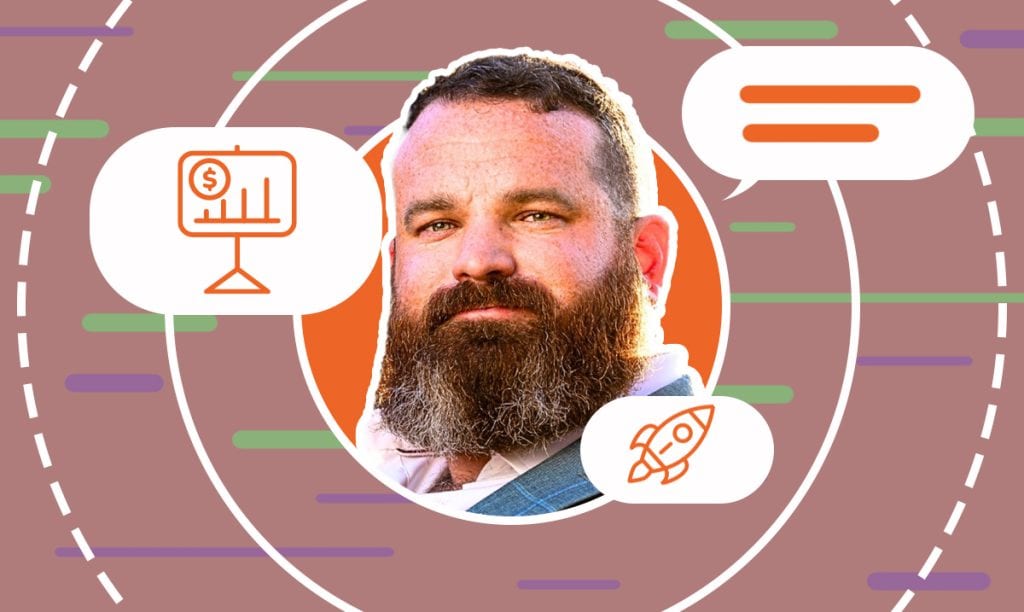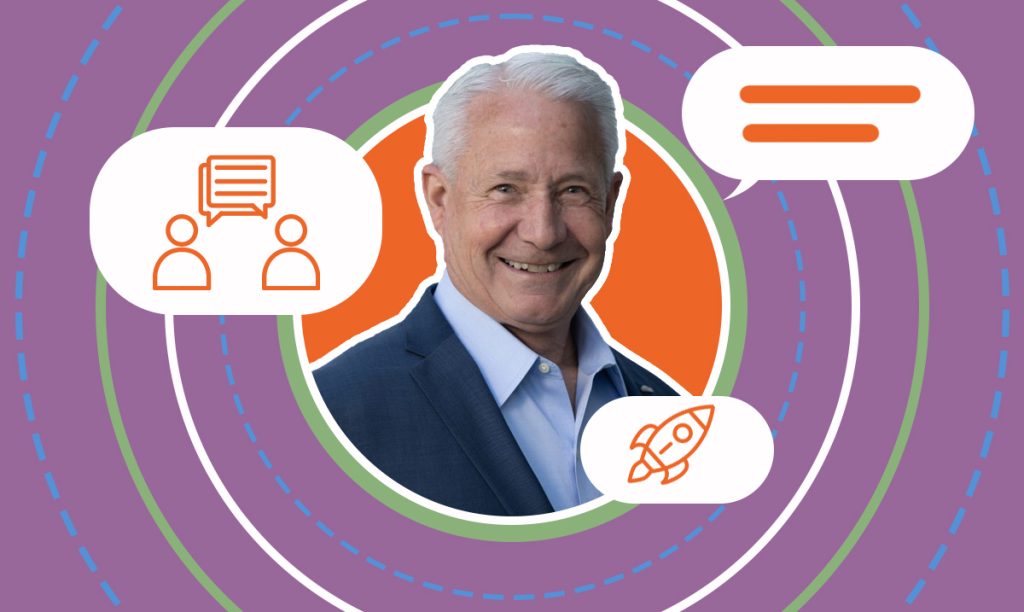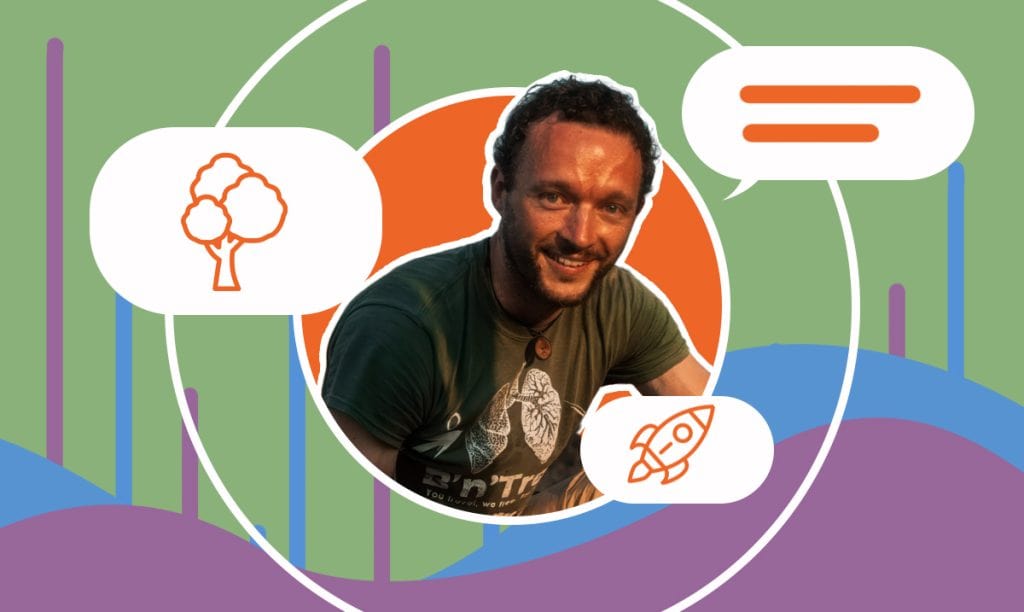In this interview, David Pere, the founder of From Military to Millionaire, shares his inspiring journey from the Marine Corps to financial freedomt ...
How to Identify Profitable Side Hustles with Nick Loper
Written by: Carolyn Young
Carolyn Young is a business writer who focuses on entrepreneurial concepts and the business formation. She has over 25 years of experience in business roles, and has authored several entrepreneurship textbooks.
Published on April 18, 2024

Nick Loper, the founder of Side Hustle Nation, offers a unique look into the world of entrepreneurial endeavors beyond the typical nine-to-five grind. With a passion for empowering individuals to create additional streams of income, Nick has cultivated a community dedicated all things side hustle.
From his own experiences to insights gained from the diverse ventures within his network, Nick shares a wealth of knowledge on what it takes to succeed in the side hustle landscape. Join us as we explore the inception of Side Hustle Nation, the characteristics of profitable side hustles, strategies for balancing work and entrepreneurship, overcoming challenges, and much more!
Origins and Inspiration
SBS – What inspired you to start Side Hustle Nation, and how has your personal experience shaped the platform?
Nick – A side hustle was my escape from the rat race of a corporate job. I wanted to spread the word and explore more about this lower risk brand of entrepreneurship.
Because my original experience was with online business, that definitely influenced a lot of the content early on. Since then, I’ve been exposed to a much wider variety of side hustles, including local businesses, freelancing, reselling operations, and tons more.
Crafting Profitable Side Hustles: Insights from the Frontlines
SBS – In your view, what are the key characteristics of a profitable side hustle in today’s market?
Nick – At its core, a profitable side hustle is about solving a specific problem for a specific customer. When things get over-complicated, it can help to get back to basics: What problem do you solve, and who do you solve it for?
Balancing Full-Time Jobs and Side Hustles
SBS – How do you recommend balancing a full-time job with a side hustle, especially in the initial stages?
Nick – The challenge of “there’s never enough time!” is pretty universal, even for full-time entrepreneurs. Here are a few strategies to make time for your side hustle that have worked for me.
First, be honest with yourself about where your time is really going. You can even do a time audit to see where your 168 hours a week are going. My guess is you’ll find several hours of opportunity worth of tasks to eliminate, automate, or delegate.
Next, make your side hustle a habit. Carve out some consistent time to work on it so you can start to feel a sense of progress and momentum.
Finally, write down your top three priorities for the next day the night before. That way, when it comes time to work, you know exactly what to work on to move your business forward proactively — and in what order — so you don’t get caught in reactive mode and waste precious hours.
From Side Gig to Main Gig
SBS – What strategies have you seen as effective for transitioning a side hustle into a full-time business?
Nick – It depends on your comfort level and risk tolerance. I’ve heard from Side Hustle Show guests quitting their job after making only their first $50 from their side hustle, while others have waited until their business was actually making more money than their day job!
Personally, I like to see a track record of side hustle profits going back 6–12 months that would at least cover your monthly expenses. That way, when you do take the leap to full-time, you can be reasonably confident you won’t have to dip into savings or take on additional debt to pay your bills.
Navigating Challenges
SBS – What are some common challenges side hustlers face, and how can they overcome these obstacles?
Nick – The most common challenges that almost all side hustlers face are time, coming up with the right idea, startup funds, and growing the business.
We’ve already covered the time aspect.
For ideas, it will depend on your unique skills, interests, and goals. But that’s one reason why we cover so many different side hustle ideas on Side Hustle Nation — to give you a huge variety of what’s possible and let you pick the right path for you.
For startup funds, I recommend keeping your costs as low as possible early on. How can you validate your ideas quickly and cheaply? After all, the first idea might not work, so you don’t want to invest too heavily into it without some proof it has staying power. Thankfully, most side hustles can be started for less than $500.
Finally, growing the business. This is the fun part! Think about how you can reach your target customers in their natural habitat. Where are they hanging out? What complementary services are they already doing business with? What pre-existing marketplaces can you tap into?
We call this the “Buy Buttons” strategy: Where can you set up shop so that it’s easy for customers to push the buy button?
Trends and Technologies
SBS – Based on your experience, which side hustles are currently trending, and what future trends do you foresee?
Nick – There’s a lot of buzz lately around vending machines, acquiring other small businesses, email newsletters, and the Amazon Influencer program. And all of these can be viable strategies.
It’s hard to predict the future, but quality home service providers seem to be increasing in demand and in short supply. If you can out-brand, out-market, and out-service the existing competition, I believe you can set up a solid business foundation just focusing on your local area.
SBS – How has technology impacted the side hustle landscape, and what tools do you consider essential for success?
Nick – It really depends on what business you’re in and how you connect with customers. For me, a website and email list are essential.
If you’re detailing cars on the weekends or running a vending machine route, the latest and greatest AI tools probably don’t impact you at all.
Risk Management
SBS – What are some risks involved in starting a side hustle, and how can someone mitigate these risks?
Nick – If you’ve managed your downside financial risk, the biggest risk may be the mental blow of having your first side hustle not work out. Instead, position it in your mind as a short-term experiment. Say, “I’m going to try this out for 30/60/90 days to see if I like it, to see if it gets results, and to see if it’s worth pursuing further.” If it works, great! But if it doesn’t, it doesn’t mean you’re an abject failure. Like a scientist in the side hustle lab, you can just pick another idea to experiment with next.

The Power of Community
SBS – How important is community engagement for a side hustle, and what are effective ways to build and leverage a community?
Nick – Community engagement isn’t necessary, but certainly won’t hurt. For example, my original side hustle was a comparison shopping site for footwear. It helped people find the best price on their next pair of shoes. There was no community element at all. Customers came in, found what they were looking for, and left.
With Side Hustle Nation, the community is a big part of it. Early on, it primarily drew from the podcast audience and it became a really cool place for listeners to ask and answer questions, and support each other along the way. But it didn’t start on Day 1; I waited until there was a critical mass of an audience and made sure it was something they wanted.
The more important community element is your own network of entrepreneurs. Are you connected with other people on a similar journey? Or do all your peers just work their day jobs and not spend any time or energy on side hustle projects? It’s super helpful to have a peer group or accountability group because the side hustle path can be a lonely one.
Financial Fitness
SBS – What advice do you have for side hustlers in terms of managing finances and reinvesting in their ventures?
Nick – This is an area I definitely could have been better at early on. I saw the monthly cash flow from the business and thought, “Great, that’s my profit!” It may have been smarter to allocate a portion of that to strategic and systematic growth projects, like investing in additional content or SEO support.
A mentor of mine told me, “Mind the nickels and dimes, and the dollars will take care of themselves.” I’ve always been relatively frugal, but if you’ve built a profitable machine it only makes sense to keep reinvesting into it. With any new investment, I try and estimate a best-case/worst-case/realistic ROI calculation. Like, “If I invest $1000 into this, and it works like it should, what’s my best-case outcome?”
It can be tempting to spend money for the sake of spending money — or because it’s a write-off — but take a moment to think of what kind of realistic return you might see from spending that money. Of course not everything is going to be quantifiable, and that’s why it’s still an experiment.
Marketing on a Shoestring
SBS – Can you share some cost-effective marketing strategies for beginners to promote their side hustle?
Nick – Go where your target customers already are:
- Marketplaces where people shop for you product or service
- Social media
- YouTube
- Joint venture partnerships
A friend of mine booked $1M in his first year in business almost exclusively from joint venture partnerships. He was able to tap into other people’s audiences (in exchange for a portion of the sales), and shortcut his own path to building a customer base.
Success Stories
SBS – Could you share a few inspirational success stories from your community, highlighting diverse side hustles?
Nick – Of course! Here are some fun ones:
- The $4k/mo video game teacher
- $3k/mo renting out mobility scooters (Read our interview with Lenny Tim)
- $50k/mo from a simple invention
- $80k from a part-time vertical farming podcast
- She turned $65 into $35k in 15 months
- $250k selling spreadsheets on Etsy (Read our interview with Emily McDermott)
Nuggets of Wisdom
SBS – Finally, what top three pieces of advice would you give to someone looking to start their own side hustle?
Nick –
1. Stop waiting for the perfect, never-before-seen side hustle idea. Just pick something you’re curious about and take action.
2. Make it an experiment. Give yourself permission to fail.
3. Seek out mentorship. In most cases, there’s no need to reinvent the wheel.
Subscribe to Our Newsletter
and gain insider access to cutting-edge business insights and trends.
Featured Resources

How David Pere Helps Veterans Achieve Financial Freedom
Published on April 3, 2025
Read Now

Empowering Entrepreneurs with a Consultative Banking Model
Published on January 23, 2025
When it comes to business banking, a one-size-fits-all approach doesn’t cut it — just ask Endeavor Bank. Since its founding in 2017, EndeavorBan ...
Read Now

How Click A Tree Makes Sustainability Simple for Businesses
Published on January 20, 2025
In this interview, Chris Kaiser, the founder and CEO of Click A Tree, shares his journey of creating a company dedicated to making sustainabilityacc ...
Read Now
Comments